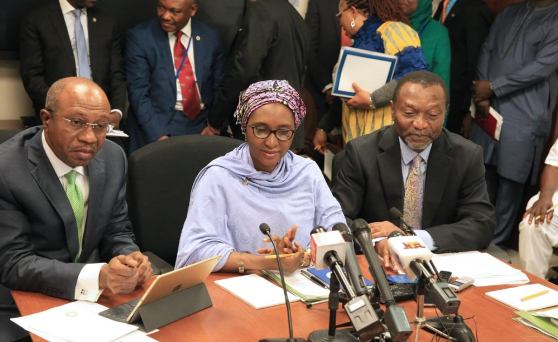There are no products in your shopping cart.
| 0 Items | £0.00 |


WORLD Bank officials have delayed the first tranche of a $2.5bn loan to be paid to Nigeria as part of the Covid-19 relief package because a meeting of its board of directors due to hold yesterday where the payment was to be authorised was postponed.
Due to the economic impact of the coronavirus lockdown, Nigeria was in dire straits as on the one hand global oil prices collapsed and then, there were no buyers for the country's petroleum. Being a mono-economy, Nigeria had no means of funding her 2020 budget, so the government approached the World Bank and the International Monetary Fund (IMF) for loans.
Both bodies approved the loan requests and the World bank was due to release the first tranche of $1.5bn to Nigeria yesterday. Nigeria will now have to wait until either September or October when the multilateral institution’s next board meeting would hold before she can receive the money.
Zainab Ahmed, Nigeria's finance minister, revealed in June that the country expected that when the World Bank board meets on August 6, the $1.5bn facility the country requested for would be approved. She added that Nigeria has met most of the conditions for the facility to be approved.
In total, Nigeria is seeking about $7bn, from multilateral financial institutions and the Nigeria Sovereign Investment Authority (NSIA) to mitigate the impact of Covid-19 on the economy. This includes $3.4bn from the IMF, $2.5bn from the World Bank and $1bn from the African Development Bank (AfDB) as well as $150m to be drawn from NSIA.
In April, the IMF's board had approved Nigeria's request for the emergency financial assistance under the fund’s Rapid Financing Instrument. Similarly, the African Development Bank board of director in June approved a $288.5m loan to help Nigeria tackle the Covid-19 pandemic and mitigate its impact on people and businesses.
These loans are also expected to help the federal government achieve set targets in its economic sustainability plan which aims to stimulate the economy by preventing business collapse and ensuring liquidity. These funds will also be used to retain or create jobs using labour-intensive methods in key areas like agriculture, facility maintenance, housing and direct labour interventions and undertake growth-enhancing and job-creating infrastructural programmes.